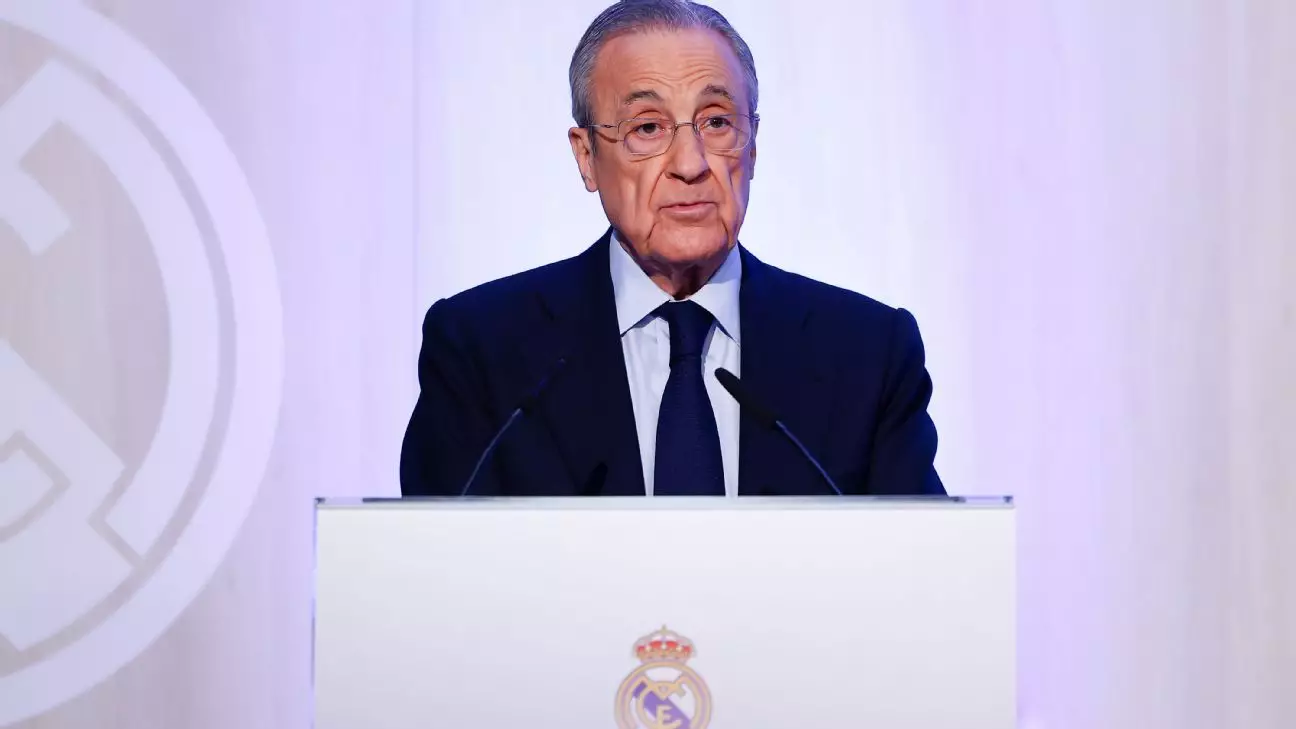In an unexpected yet unsurprising turn of events, Florentino Pérez has been re-elected as the president of Real Madrid for an additional four years, marking another chapter in his storied legacy. His unopposed candidacy for the role sheds light on the prevailing stability within the club, hinting at a lack of viable alternatives rather than overwhelming support from potential challengers. Over a decade has passed since Pérez last faced a rival for leadership, underscoring both his solid grip on power and the stringent qualifications that deter possible competitors. This re-election not only reinforces Pérez’s longstanding influence but also points to a broader narrative about leadership in elite football institutions.
The candidate requirements for the presidency at Real Madrid are notoriously strict. Aspiring individuals must have been a club member for a minimum of 20 years and provide a bank guarantee equivalent to 15% of the club’s annual budget. These conditions create a fortress around Pérez’s presidency, ensuring that only those with deep personal ties to the club and significant financial backing can even consider running. Such barriers to entry may be partially responsible for the lack of contenders, showcasing a calculated move to maintain a stable leadership under Pérez’s direction. It also reflects a potential concern within the club itself regarding risk-taking in an era where financial stability and legacy are paramount.
Since first taking the helm in 2000, Florentino Pérez has been a transformative figure in football—not just for Real Madrid, but for the sport as a whole. His initial term was characterized by the ‘Galáctico’ ethos, that saw remarkable signings such as Zinedine Zidane, Luis Figo, and David Beckham. This renaissance not only attracted global attention but also elevated the club’s brand to new heights. Under Pérez’s leadership, Real Madrid has not only won numerous trophies, including multiple LaLiga titles and Champions League victories, but it has also solidified its reputation as a powerhouse in world football.
Yet Pérez’s journey has not been without its pitfalls. Following a lackluster period that culminated in a three-season trophy drought, he resigned in 2006—a move that showed both humility and an acknowledgment of the unpredictability of football management. Nevertheless, his return to the presidency in 2009 has arguably been marked by unparalleled success, accumulating an impressive trophy cabinet that includes an unprecedented three Champions League titles in succession from 2016-2018.
Despite his accolades, Pérez’s tenure has not been devoid of controversies. His recent push for the Super League—now rebranded as the Unify League—has placed him at odds with key figures such as UEFA President Aleksander Ceferin and LaLiga President Javier Tebas. The proposed league highlights a fundamental clash over the future direction of football, revealing underlying tensions regarding broadcast rights, revenue distribution, and the preservation of traditional competitions.
These issues are pivotal; as the landscape of football continues to evolve, so too does the need for strategic adaptability from its leaders. Pérez’s proposals have ignited debates about the viability and ethics of restructuring competitions, and whether such changes could ensure the sport’s future in an increasingly commercialized environment.
Florentino Pérez’s unopposed re-election can be seen through multiple lenses—stability, influence, and ambition. While his leadership has undeniably propelled Real Madrid to unprecedented success, it is increasingly accompanied by scrutiny and debate regarding the future of football governance. As Pérez continues to steer the club amidst shifting tides in the sport, he must navigate the complexities of modern football with an eye toward sustaining the legacy he has meticulously built while embracing the inevitable challenges that lie ahead. His presidency, marked by triumph and discord alike, serves as a microcosm of football’s broader narrative—a perpetual balancing act between tradition and innovation.

